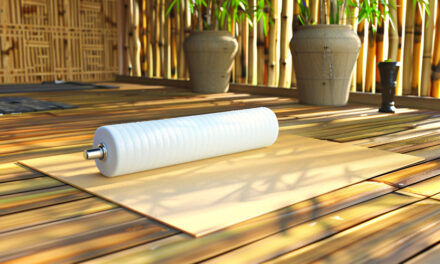
The Truth About Remote Productivity & Nomad Life

Remote Productivity and Digital Nomad Life: Authentic Lessons Freelancers Won’t Tell You on Instagram
Remote productivity and digital nomad life often look glamorous from the outside—sunset laptop sessions, luxury Airbnbs, and sipping coconuts on the beach. But what most blogs and influencers don’t show you is the other side: the Wi-Fi struggles, timezone chaos, motivation crashes, and emotional isolation that come with it.
In this post, we’re getting brutally honest. Whether you’re new to freelancing, dreaming of working while traveling, or already deep in the lifestyle, here are the real, non-glamorous truths and insights from people who’ve lived it—successfully and not.
Remote Productivity: The Myth vs. Reality
Let’s bust the myth: working remotely doesn’t automatically make you more productive. In fact, without a structure or accountability, it’s easy to fall into cycles of procrastination and burnout.

Remote Productivity and Digital Nomad Life: Authentic Lessons Freelancers Won’t Tell You on Instagram
✅ What actually works:
-
Time-blocking your day with tools like Notion or Google Calendar
-
Using apps like Toggl to track billable hours and manage workload
-
Building a single deep work session into your daily routine (2–3 distraction-free hours)
-
Creating a “shutdown” ritual at the end of your workday to protect your personal time
❌ What doesn’t work:
-
Over-scheduling every minute of your day
-
Trying to mimic a 9–5 at home
-
Staying “online” all the time to prove you’re working
Digital Nomad Life: Freedom With Friction
Being a digital nomad is a dream for many—but the emotional and logistical reality is more complex. Constant travel can trigger instability, financial unpredictability, and loneliness.

Remote Productivity and Digital Nomad Life: Authentic Lessons Freelancers Won’t Tell You on Instagram
Real Challenges:
-
No stable Wi-Fi: Many nomads rely on coworking spaces or mobile hotspots
-
Timezone fatigue: Managing global clients can mean midnight meetings
-
Isolation: It’s common to feel disconnected without a physical support circle
Real Coping Strategies:
-
Slow travel: Spend 1–3 months in one place to build routine
-
Community: Use platforms like Nomad List, Facebook groups, and coworking spaces to find peers
-
Mental health care: Journaling, therapy (even virtual), and regular contact with loved ones is crucial
Freelance Business Lessons: The Stuff You Learn Too Late
Going freelance is empowering—but without business knowledge, it’s easy to undervalue yourself and end up overworked for little return.
Hard Lessons:
-
Always have contracts—Even if it’s a friend or startup, protect your work.
-
Say no—Don’t be afraid to walk away from clients who lowball or micromanage.
-
Raise your rates annually—If you’re doing better work and delivering faster, you deserve more.
-
Diversify your income—Create templates, courses, ebooks, or digital products.
Pro Tip: Clients often respect you more when you assert boundaries and price based on value—not hours.
Remote Burnout Is Real—Here’s How to Fight It
Remote workers and digital nomads often experience burnout because the line between “work” and “life” gets blurred.
Signs of Remote Burnout:
-
Loss of motivation
-
Mental fog and lack of creativity
-
Physical exhaustion despite “flexible” hours
-
Feeling disconnected from work purpose
Burnout Recovery Tips:
-
Work in time sprints (Pomodoro method: 25 min work, 5 min break)
-
Schedule creative breaks: Walks, hobbies, offline activities
-
Take real days off—even if you love your work
-
Outsource repetitive tasks to VA or automation tools
Final Takeaway:
Remote productivity and digital nomad life is not about chasing an aesthetic—it’s about designing a life that’s free, sustainable, and fulfilling on your terms.
You don’t need to have it all figured out, but you do need to stay grounded, build systems that work for you, and give yourself grace as you grow. This lifestyle isn’t for everyone—but for those who can navigate its reality, it’s deeply rewarding.
❓ FAQs
Q1: How can I stay productive as a freelancer?
A: Set clear goals, work in time blocks, and eliminate distractions. Focus on results, not just busy tasks.
Q2: What’s the best country for digital nomads in 2025?
A: Portugal, Thailand, Mexico, and Estonia remain top choices due to nomad visas, good internet, and communities.
Q3: How do freelancers find clients?
A: Through platforms like Upwork, Fiverr, LinkedIn, and referrals. Consistent portfolio updates help build credibility.
Q4: What are essential tools for remote work?
A: Notion (organization), Trello (task management), Slack (communication), Zoom (meetings), Clockify (time tracking).
Q5: Is it safe to freelance while traveling?
A: Yes, but do your research: secure internet, travel insurance, VPN use, and always backup your work.















